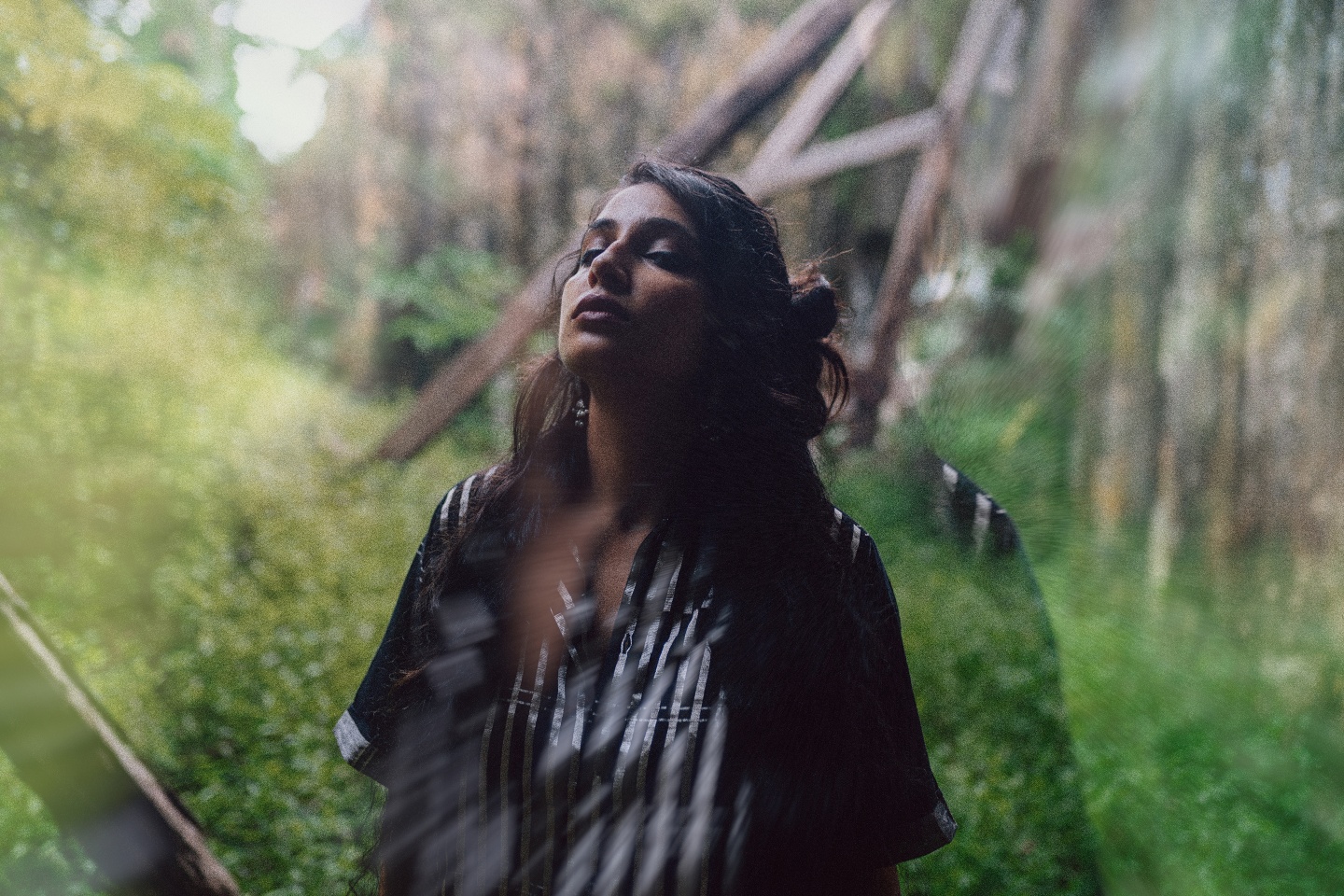Sheherazaad’s new roots
The American singer-songwriter’s new EP Qasr creates a transcendent grammar from the music of her heart.
 Sheharazaad. Photo by Ronit Sarkar.
Sheharazaad. Photo by Ronit Sarkar.
The Opener is The FADER's short-form profile series of casual conversations with exciting new artists.
Sheherazaad is in a hurry. The songwriter and composer is on her way from rehearsals in New York City, she tells me after I call her, and she needs to find a patch of nature to decompress in. “Even if it's just one shitty little river facing a ferry area,” she says, it’s good enough. These escapes are vital for her to create music like that of her new EP Qasr, a five-track celebration of her boundless musical heritage from the South Asian diaspora and beyond. “It's deriving from source and prayer, and being connected to spirit,” she says of her writing process, “and so it's very hard to do that without some kind of access to nature.”
Qasr has a fraught relationship with foundations, treating them as both stabilizing and agents of internal chaos. Sheherazaad was raised in the South Bay Area by a family of musicians — her parents both played in bands and her grandmother produced concerts for giants of Indian classical music. In her house, she heard globally beloved singers like Aretha Franklin and Lata Mangeshkar, as well as “a fair bit of bad fusion,” too. Her formal education began at age six with the study of jazz and the American Songbook; but these fixtures didn’t add up to the sum of the expression in Sheherazaad's heart, so she gave up singing for years. “I just felt like, ‘This can’t be it,’” she says, a trace of protest still lingering in her voice.
While attending New York University for global education studies, Sheherazaad found a community of other artists from similar backgrounds who had channeled their frustrations into new sounds. She attended a 2016 show in Brooklyn featuring Swet Shop Boys and Arooj Aftab on the lineup; the gig helped spur her to return to music, and Aftab would eventually produce Qasr after winning a Grammy for 2022’s Vulture Prince. “It is a continuous education, working with her, seeing her as the northern star,” Sheherazaad says. “Her aura has been so creatively nourishing.”
Sheherazaad returned to the West Coast after college and connected with Madhuvanti Bhide, a guru in Hindustani classical music who would aid her re-immersion in Persian and Arabic music. Sheherazaad's debut album Khwaabistan (meaning “Dreamland” in English) was released in 2020; though now unavailable to stream or purchase, it was integral for Sheherazaad in “revealing a world of musicality, of soundscape that I could keep building on with every new step forward.”
Qasr embodies Sheherazaad’s central belief that “the voice is the most intimate reflection of our inner and outer world.” Singing in Hindi and Urdu, Sheherazaad wields her voice like a brush made of smoke, casting her calligraphy across each track. On “Mashoor,” the project’s opener and a treatise on the pitfalls of fame, she begins with a Hope Sandoval dreaminess that routinely hits operatic peaks. The surf rock glaze of “Koshish” is given a revelatory glow, with Sheherazaad's voice weaving around the melodies, giving them new context and colors. All of the songs tell a story — Sheherazaad compares them to individual rooms in a house — but she cautions against literal interpretations of the lyrics. “Storied lyricism, storied musicality, it's all at the heart of what I do,” Sheherazaad says, “but it's definitely non-linear forms of storytelling.”
Qasr ends with “Lehja,” a ballad that feels like a desolate island with gentle wisps of kanun passing through a limestone bedrock of soft piano keys as Sheherazaad describes a young woman who is ostracized for being herself, yet endures. At the end of the song, she seems to look the listener in the eye, singing “Tum bhi, sheher valon ko bhool jao / Azaadi! / Azaadi!” (“You too, forget the city folk / Freedom! / Freedom!”) It’s an entreaty for the listener as much as a mantra for Sheherazaad, who stresses the importance of fluidity in her work. “It's about pushing the boundaries and honoring the experimental,” she says, “finding the nuance and subverting the expectation, even from oneself.”